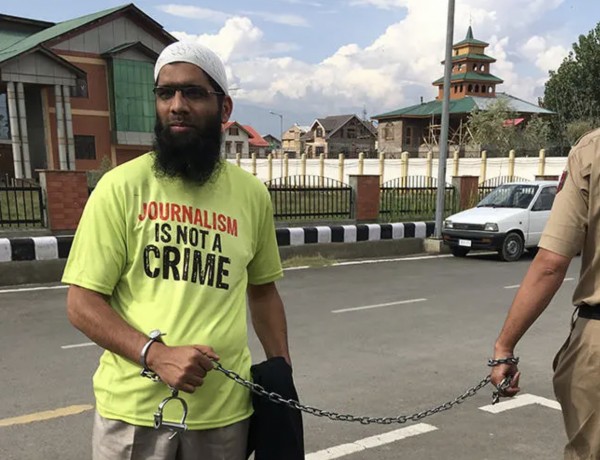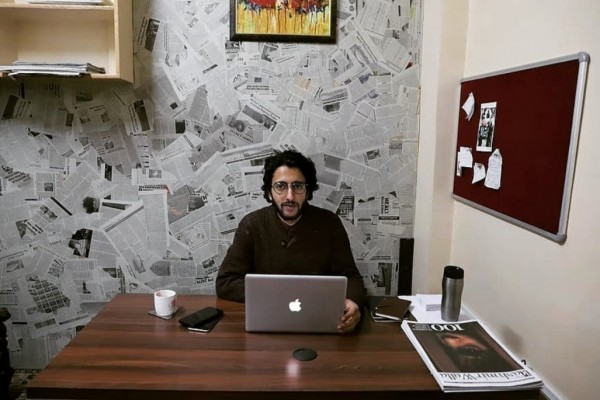Amid the 2019 general election in India, Ritika Chopra, senior assistant editor of The Indian Express, followed very carefully how the Election Commission, one of the most important institutions in the country, actually works. Her long-term effort led to several scoops, which uncovered the Commission’s inability to discharge its responsibilities.
For example, it turned out that it took extremely long for the Commission to respond to all the complaints against the incumbent Prime Minister Narendra Modi and then-president of the ruling Bharatiya Janata Party (BJP), Amit Shah. She also found out that there was an unheard-of disagreement between the three election commissioners. Chopra’s scoops were followed up in many major media, and compelled the commissioners to explain their actions.
Last week, the series of articles brought Chopra the prestigious IPI India National Committee Award for Excellence in Journalism. In its justification, the jury, headed by former Indian Attorney General Soli Sorabjee, said that Chopra’s reports had highlighted an important issue involving the free and fair conduct of democratic elections. The jury also noted that she had investigated the issue diligently relying on documentation of the cases involved, and by verifying the proceedings and meetings of the Commission.
“I am proud of Ritika’s work and grateful to the IPI. Its recognition reinforces the power of investigative journalism to crack open the walls of public institutions to tell citizens what’s going on inside”, Raj Kamal Jha, the chief editor of The Indian Express, told IPI. “At the Indian Express, this is our fifth IPI Award and, yes, we are counting.”
IPI’s India National Committee has presented the award since 2003. Last year, the jury awarded the private news channel NDTV for an investigation into the murder of an eight-year-old girl in Kashmir in 2018. The investigation was led by former NDTV senior anchor and journalist Nidhi Razdan.
In a recent interview, 2020 winner Ritika Chopra told IPI more about her investigations and the media environment in India. She also highlighted the increasing challenges reporters are facing in their work. Chopra will receive the award in New Delhi this spring.
IPI: How do you feel about receiving the IPI India award?
This IPI recognition is a really big honor. To me, personally, it reaffirms the fact that there is no replacement for shoe-leather reporting: building sources, scouring documents and confirming and re-confirming facts. This prize is the biggest recognition of that fact. Some of the most important newsbreaks and investigative stories have come out of reporting a story inside out. The award is an important reminder of that because we are living in times where a hot-take or a personal opinion about an issue ends up getting more attention than a deeply reported piece.
IPI: What was your Election Commission investigation about?
I write about the Election Commission of India for The Indian Express. The Commission is one of the most important institutions in our country as it conducts the elections. Institutions are not usually designed to be transparent, which is why it’s difficult for journalists to report on them and inform readers on what is actually going within those institutions. But as a reporter, I was committed to investigate the events and processes in this institution.
While covering the Commission during the Indian parliamentary elections in 2019, I uncovered that it was taking unusually long for it to respond to the complaints against the incumbent prime minister and the-then president of the governing party. I also uncovered that, aside from its tardy response to those complaints, the Commission itself ended up a divided house, which was unprecedented. All this was unknown until my newsbreaks brought it into the public domain.
IPI: What challenges did you face in the investigation?
We are living in a time where it is becoming more and more difficult to report on institutions in India, as these are being shaped by a very strong executive. Sources are drying out. Reporting the divide among the three Election Commissioners and staying ahead with every development on this story in itself was very hard as the Commission was trying its best to keep the rift under wraps. The fact that my reporting was adversarial made my task of uncovering the story extremely challenging. I had to ensure that I was presenting the story accurately and fairly. I did so by speaking to a lot of people, going through documents, and verifying and re-verifying facts, and at the same time, I was trying to maintain confidentiality due to the sensitivity of the issue.
IPI: As a woman journalist, do you find that you face additional challenges and obstacles in your work?
In India there are a lot of women reporters who are doing really important stories. The last three IPI India Awards have been won by female journalists. So, women have a voice in this sector. Fortunately, the challenges I faced as a journalist weren’t too different from what my male peers normally face in this profession. I am talking about the pressure one faces on a daily basis when it comes to reporting uncomfortable stories and stories hold the powerful to account.
I also work in a newspaper where there are many women editors, so I haven’t personally faced any specific challenges related to my gender. But that doesn’t mean that no one else does. I mean, there are female journalists in India who are constantly harassed online for their work and end up being targeted more than male journalists.
IPI: How would you describe the current atmosphere in India for journalists?
The biggest challenge to journalists in India comes from the fact that there are attempts from those in power to undermine the media and its credibility. A motive is attached to what we do as reporters. Innocent mistakes are weaponized to attack journalists or an organization. That is what makes our job difficult.
There is also another challenge we need to overcome. It’s what my editor, Raj Kamal Jha, calls “selfie journalism”. Journalists are not the story. Our job is to tell stories. Social media, I feel, is hurting this basic principle of journalism as it rewards hot-takes and opinions and eclipses good journalism. This is what we journalists have to introspect on.



